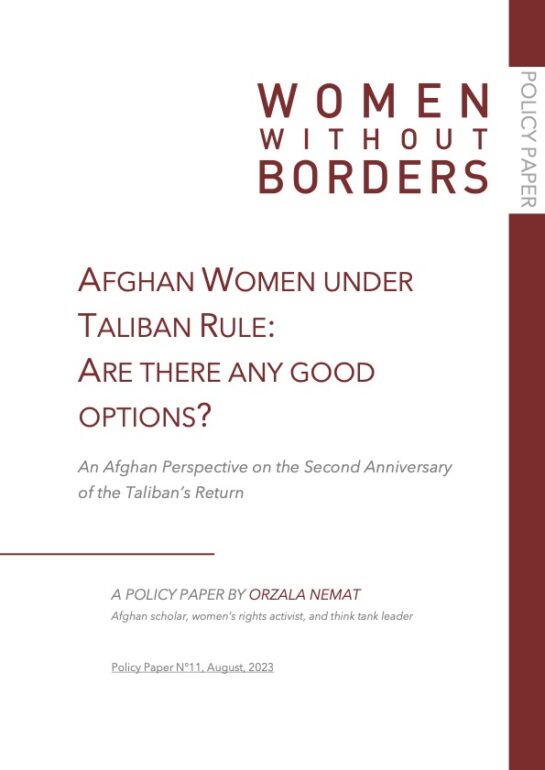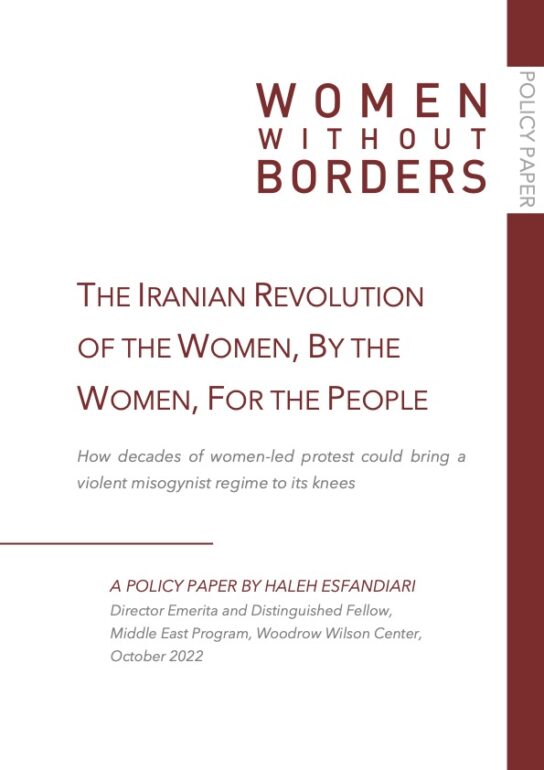In Policy Paper N°11, Afghan scholar and women’s rights activist Dr Orzala Nemat reflects on the two years since the Taliban returned to power in Afghanistan and have systematically imposed country-wide draconian measures, violating the basic human rights primarily of women and girls. She argues that diplomatic efforts, humanitarian aid, and sustained advocacy for women’s rights should continue to be at the forefront of global action and that the reopening of secondary and high schools and universities and allowing women back to work must become a pre-condition for any form of political engagement with the Taliban.
This week, as the world marks the second year of the Taliban’s return to power in Afghanistan, their systematic oppression of women remains at the forefront of national and international discussions. The global outrage against these restrictions has only seen the Taliban furthering them.
Afghanistan is facing a collective of humanitarian, economic, and political crises, all of which are only deteriorating the situation for Afghans across the country and those refugees in transition without status and a clear future. There is a crisis of political representation, as the former republic representatives lost their credibility entirely due to running away from the country, and the Taliban are not recognised by any country officially, ruling through a system that is not acceptable by global norms and universally accepted values. Unfortunately, the voices and concerns of Afghan people who suffer from these restrictions are lost in the midst of these crises.
Since seizing power in 2021, the Taliban have banned girls from all but primary education, most forms of employment, and severely restricted their ability to leave their homes. Sadly, there is no sign or indication that the Taliban will ease their restrictions, which have progressively increased over the last months. Moreover, the Taliban’s monopoly over violence and their territorial control means that the ban is effective across the rural and urban parts of Afghanistan, with only a few exceptions. The possibilities of providing secret schooling or online education are limited and entail high risks, and in no way or form can compensate millions of girls in need of their fundamental rights to receive an education. The removal of educational and employment opportunities for women threatens to have long-term consequences for the country. Unfortunately, none of the international or regional engagements so far have been fruitful in changing their views on universally accepted norms such as women’s rights and girls’ education.
Read the full policy paper here.




